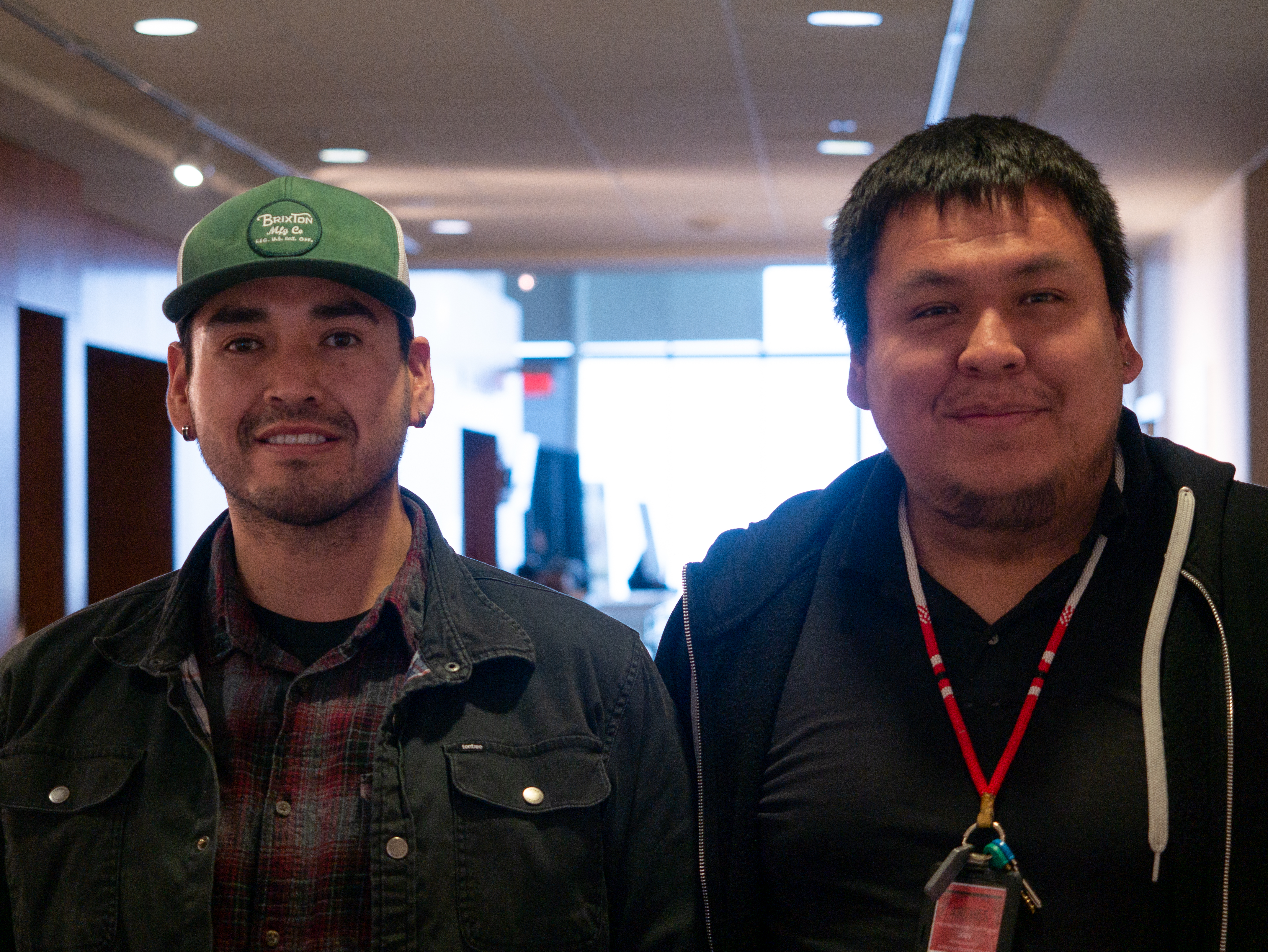Myles Bruised Head (left) and his brother Joey Blood (right) work together at ARCHES in Lethbridge to connect people to Indigenous culture and heal addiction.
Two brothers are working to change both the way Indigenous culture views addiction and the way people connect to their culture to find a sense of community and identity.
On an average day at ARCHES supervised consumption site (SCS) in Lethbridge, you can find Myles Bruised Head and his brother Joey Blood coaching Indigenous people through addiction.
“It became kind of our motto ‘I can’t wait for the that day we no longer exist in our professions,’” said Bruised Head, cultural coordinator at ARCHES.
Blood is a recovery coach in the Indigenous cultural program and looks forward to the day he is out of a job.
“It’s unfortunate that our jobs have to exist, that it has got to this point,” he said.
He said he hopes the people he helps will in turn coach others in recovery and help them reconnect with their culture.
“We want to show the world our culture, but at the same time, we have to show our own people it first,” said Bruised Head.
He said often when people with addictions move to Lethbridge from reservations, they can become disconnected from their culture and feel embarrassed to go back. Sometimes they are afraid to talk to elders for help with recovery, for fear of disrespecting them.
“We are in such a new era of this that we don’t have any traditional historical stories that could culminate and represent what the opioid crisis is,” said Bruised Head. He said in the past, Indigenous people have struggled with alcohol addiction and elders can find it hard to understand how it differs from opioid addiction.
“It’s always been a one-way passage of knowledge – we are now having to evolve and teach them,” he said. The environment of addiction is changing, not only for Indigenous culture, but for all people. Bruised Head says Indigenous culture has to evolve with it to include new stories and teachings.
“The root of all addiction is social exclusion, social isolation [and] traumatic experiences,” said Jerry Firth, cultural program manager.
He said trauma can change people’s DNA and be passed down in different ways. According to Bruised Head, multi-generational trauma often affects people when they become young adults. After leaving high school, he says a lot of Indigenous people can feel lost and stressed with trying to figure out their place in society.
“That’s why I say living in two worlds becomes really evident once you become an adult. You are sailing on your own boat nowadays, as opposed to us being told all throughout our youth ‘you are Blackfoot, you are a real person and you live here in a community that’s going to protect you,’” said Bruised Head, adding a lot of people access consumption sites because they don’t understand the trauma they feel, which often came from abuse in residential schools.
“They are looking at their parents saying, ‘why are my parents alcoholics or drug addicts,’ when in reality, it is probably because they went to residential schools or they suffered sexual assault from a family member. Not because that is something that exists in native culture, but was something brought upon us,” said Bruised Head.
Some addictions stem from physical trauma, such as an accident at work, which can lead to an opioid prescription. Others come from trying to cope with mental trauma.
“Everyone who has hurt, that struggles to find a healthy way to deal with it, will inadvertently hurt another person or themselves,” said Firth.
Bruised Head said he and his brother could not do the work they do if Indigenous ways were dying.
“What we are realizing now is that they are thriving, but not only that, we are able to evolve them to meet the needs of the opioid crisis,” he Bruised Head.



